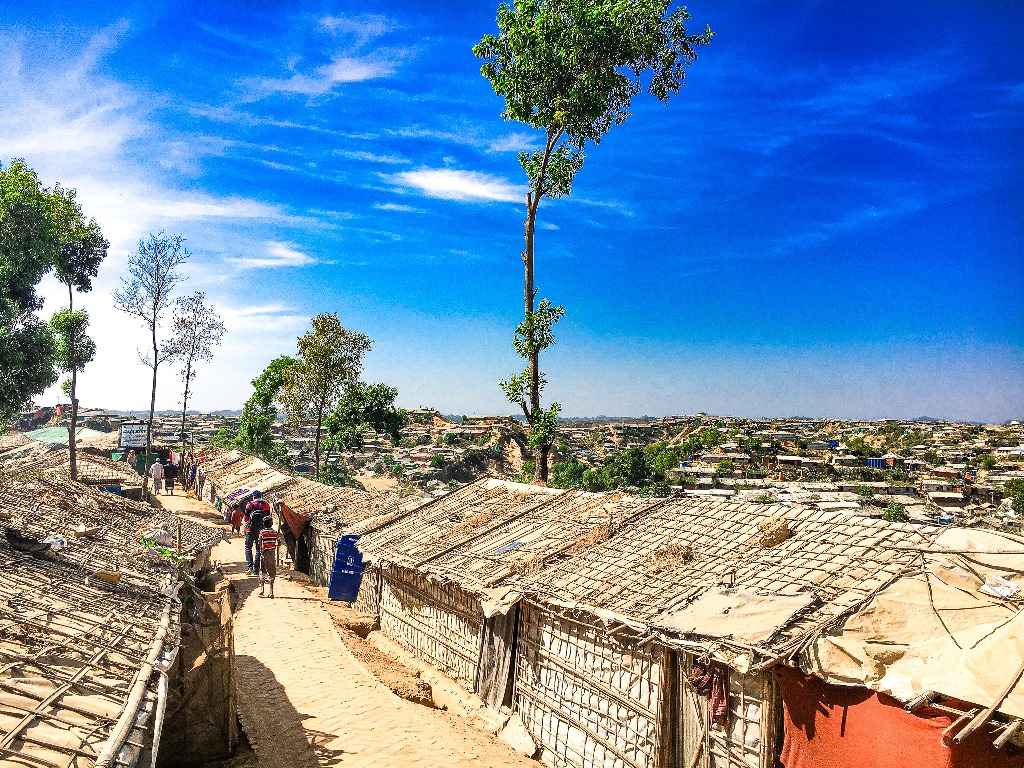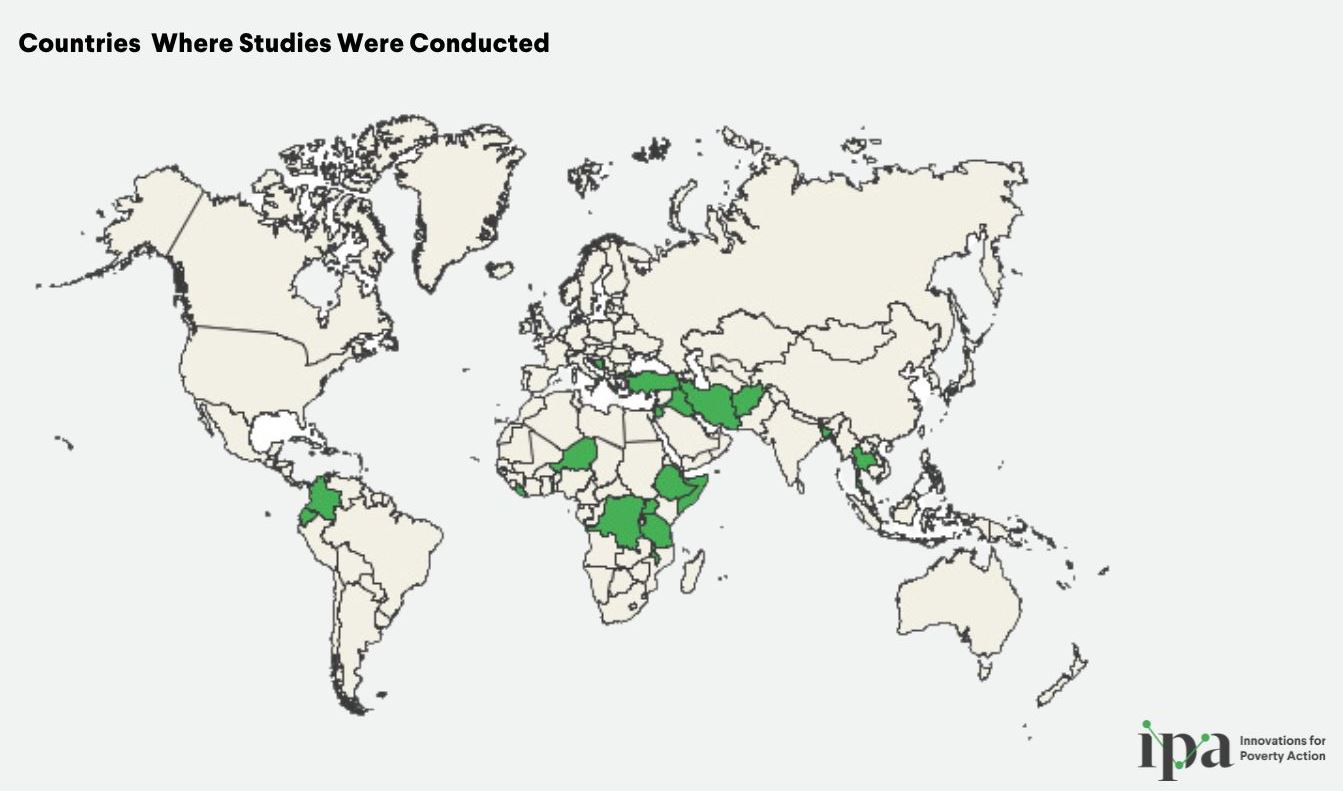Responding to Displacement: Insights from Impact Evaluations
In Geneva this December, the Global Refugee Forum will bring together the world’s leaders from government, refugee communities, the private sector, civil society, academia, and other important stakeholders. This three-day gathering will galvanize cooperation in support of refugees and host communities, working towards the goals of the 2018 Global Refugee Compact. As the international community prepares to convene to further this important mission, a wide gap remains in our understanding of how best to meet the needs of displacement-affected communities. With more than 110 million displaced people globally, now more than ever, we need reliable, comparable, and timely data to identify durable solutions and achieve predictable and equitable outcomes for refugees and host communities.

In advance of the last Global Refugee Forum in 2019, IPA drew attention to how limited the evidence base was on what works to improve outcomes for displaced populations and host communities. The good news is that this is changing. Since 2019, the number of rigorous impact evaluations with displacement-affected communities has more than doubled. IPA recently released a scoping review of these evaluations, summarizing what we know about what works to improve outcomes for displaced populations.
What have we learned?
Overall, our review identified 44 evaluations of policies and programs for displaced populations across 27 displacement-affected settings, covering a range of topics and outcomes: household welfare, food security, education, health, livelihoods, and social cohesion. A majority of the evidence focuses on health, with a significant portion targeting mental health. Importantly, the existing research indicates that a range of mental health services can be effectively delivered by lay community members, which has the potential to broaden the reach of mental health services to hard-to-reach and vulnerable communities.

Unconditional cash transfers and voucher assistance programs have been shown to effectively improve a range of outcomes for displaced populations. From improving mental and physical well-being and increasing access to clean water and healthcare to reducing negative coping strategies and lifting barriers to school enrollment for displaced children, the evidence shows that unconditional cash transfers work. Evidence suggests that households generally first spend cash assistance on basic and immediate needs, such as food, water, and shelter, and only once these needs are met do we see its broader impacts on livelihoods, secondary healthcare, and less essential goods and services. The evidence further suggests that cash may grant displaced adults greater occupational choice, providing them the ability to look for higher-paying, less dangerous and better-quality jobs and that larger cash transfers may be more effective at improving livelihood outcomes.
There is a growing body of evidence on social cohesion between displaced and host communities based on studies of social protection, intergroup contact, and perspective-taking interventions. While this evidence is limited, findings suggest that efforts to build cohesion between displaced and host communities can have positive outcomes for displaced populations, without causing backlash from hosts, at least in the short term.
Finally, from a technical perspective, due to the difficulty of conducting research in displacement-affected settings, some research studies focus on short-term effects or are limited by small sample sizes. These limitations are often for good reason. Displaced individuals may not complete programs, or may be difficult to follow up with, because they are on the move; administrative data is rare or unreliable; and in many places with large displacement influxes, there isn’t strong research infrastructure, hence increasing study costs. Through our established presence in 20 countries, IPA is creating research tools, investing in research staff, and providing direct technical support to build capacity and improve the quality and consistency of our publicly available data in increasingly complex contexts.
What’s next?
While the amount of evidence has grown significantly, so has the scale of the problem; globally, 40 million more people are displaced now than during the last Global Refugee Forum in 2019. Gaps in evidence remain in many areas, like livelihoods, protection, and social cohesion, and more information is needed on the impacts of programs on marginalized groups, internally displaced populations, and gender.
Researchers and implementers are responding to these needs, and there are now more ongoing randomized evaluations than have ever been published on displacement, a significant proportion of which IPA is proud to be implementing or supporting. Between this Global Refugee Forum and the next, IPA will continue to respond to policymakers’ and practitioners’ evidence needs by pledging to generate more and better research, prioritizing ethics and the participation of those with lived experience of displacement in our work, equipping our partners to apply evidence in policy and program design, and supporting new studies on under-researched topics through efforts like our Displaced Livelihoods Initiative, a partnership with J-PAL with support from IKEA Foundation.
As a result, we expect to have much more evidence in the coming years about what works to meaningfully strengthen outcomes and achieve durable solutions for displaced communities. We look forward to continuing to share these results with decision-makers responding to displacement crises around the world as they become available to help improve lives with evidence.












